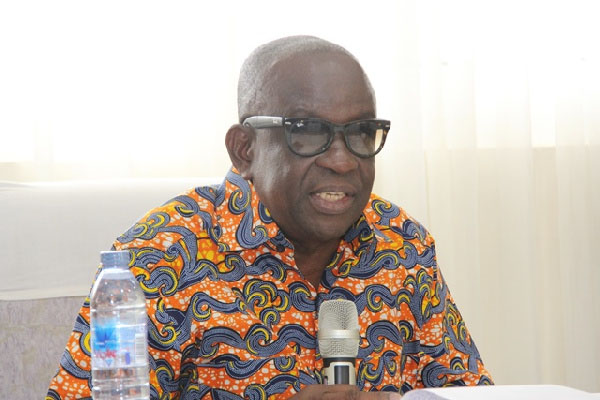Albert Kan-Dapaah
The Minister-designate for National Security, Albert Kan-Dapaah, says Ghana remains fairly safe in spite of the growing insecurity in the West African sub-region, particularly issues connected to terrorism and other violent crimes.
According to him, this does not mean that the nation will lower its guard in protecting its territorial integrity since one of Ghana’s neighbours, which had 30% infiltration of terrorists, now habours between 75% and 80% of its territory under the control of terrorists and is still growing.
Answering questions during his vetting by the Appointments Committee of Parliament on Wednesday, Mr. Kan-Dapaah said “we have observed that our strategy and plans are that this problem requires an intelligence-led solution.”
“We believe, to the extent that we are improving intelligence gathering, we are fairly safe. But we must never lose guard. We will continue to work hard to make sure we are not overtaken by events,” he stressed.
BNI to NIB
The minister-designate disclosed that at a meeting of the National Security Council, President Akufo-Addo made a very strong point that under the security and intelligence architecture specific agencies needed to have specific roles to play.
“We know what the roles of the armed forces and police service are, and we also know what the intelligence agencies should be,” he noted.
Mr. Kan-Dapaah disclosed that President Akufo-Addo explained that the intelligence agencies ought to be basically responsible for collecting and gathering intelligence, analyzing such intelligence and giving it to the security agencies to act on, saying, “We have observed when we took over that the Bureau of National Investigation (BNI) was too much into investigations – work that should properly be done by the CID. And we thought in the process they were not focusing enough on intelligence.”
“As a result, we made some changes, including the headship of the BNI. We brought somebody in who did the refocusing for us; and today we don’t have the NIB only collecting intelligence, we do have in place well trained and good analysts’ team who analyze the raw intelligence that is collected for us,” he pointed out.
He added that when the government and the Ministry of National Security succeeded in refocusing the intelligence agencies, they then decided to change the name from BNI to National Intelligence Bureau (NIB).
Domestic Challenges
On domestic security challenges, Mr. Kan-Dapaah said chieftaincy was one of the issues they are dealing with, saying that “every day the security reports that I get on my desk are about 40% related to chieftaincy matters. Chieftaincy means a lot to many people in Ghana; it doesn’t matter the tribe.”
“Given the experience the national security has had, I believe that we should continuously work closely with the Chieftaincy Ministry, and to try to find solutions to chieftaincy matters in other places in the country,” he suggested.
What is tough for the National Security Ministry, he noted, was the mistrust the actors of chieftaincy harbour for the security services in intervening to find “open solution,” but stated that it was important for the national security apparatus to help try to address some of these chieftaincy issues.
“If given the nod, I would help to find a solution to these matters. For many years we had the National Security Secretariat and there was a law that supported it. Over the years, two attempts have been made to try to move it from a secretariat to a ministry.
“The intelligence and security agencies have been with us and we don’t want the mere mention of them to send fear into the spines of people.
“And I want say that one of the things I have worked very hard on during the period that I have been here to demystify all these stories about national security; and I think Parliament should continue to insist that they remain very transparent, more accountable to the people without losing sight of the very essential work that we have to do about the secrecy that must go with it,” he said.
By Ernest Kofi Adu


